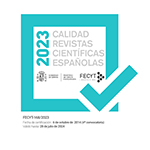Truth Debated. The Predominance of the Legal Paradigm in the Examination of Human Rights Abuses in Argentina
Abstract
In these pages I will examine three representations, developed in diverse political contexts and under different epistemological frameworks, of the value of criminal justice for addressing human rights abuses in Argentina. The first is the legal strategy of the Raúl Alfonsín government, which sought to establish an exemplary sentence founded on a utilitarian perspective of punishment and based on the truth brought to light by the Never Again report produced by the National Commission on the Disappearance of Persons (CONADEP). The second involves the critical reflections regarding this strategy that were formulated by one of its architects, Jaime Malamud Goti, in the context of impunity following the pardons granted to the military juntas by President Carlos Menem, which at the time appeared to preclude any possibility of dealing with such abuses in the judicial sphere. The third, furthered by academics and relatives of the disappeared in the last five years, arose from the impact that the experience of the South African Truth and Reconciliation Commission also had in Argentina. Through the discussion of these representations I will show that while the role of trials in addressing human rights violations is being revisited, at least by a portion of those who advanced them, that resignification is framed in the legal paradigm and reinforces the predominance of that paradigm as a way of processing the violent past in Argentina.
Downloads
Article download
License
In order to support the global exchange of knowledge, the journal Política y Sociedad is allowing unrestricted access to its content as from its publication in this electronic edition, and as such it is an open-access journal. The originals published in this journal are the property of the Complutense University of Madrid and any reproduction thereof in full or in part must cite the source. All content is distributed under a Creative Commons Attribution 4.0 use and distribution licence (CC BY 4.0). This circumstance must be expressly stated in these terms where necessary. You can view the summary and the complete legal text of the licence.











